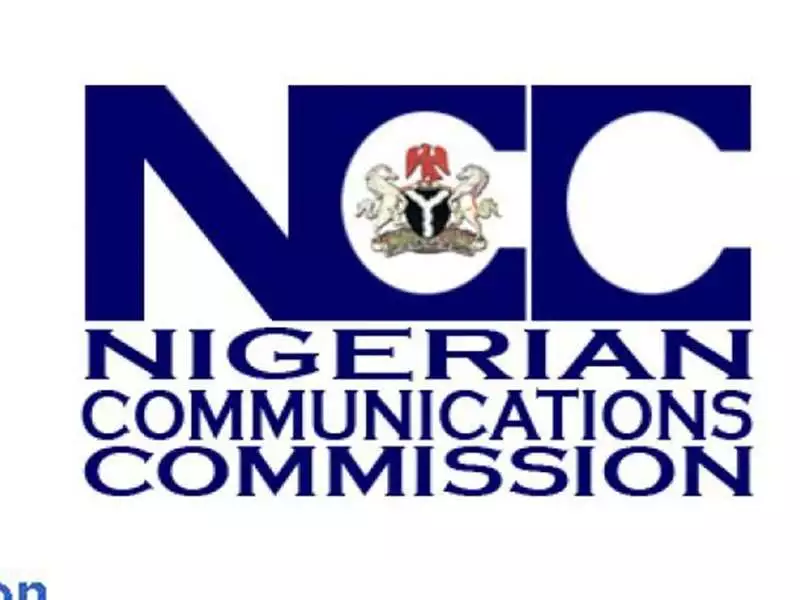By Oji Odu
Following several warnings by the Nigerian Communications Commission (NCC) since last year, the nation’s telecommunications regulatory body to sanction erring telecommunications operators over call masking, the Commission has gone ahead and made good its threat.
In a statement on Tuesday, February 27, 2018, NCC Director of Public Affairs, Tony Ojobo, after a painstaking investigation process, which was done in collaboration with the Office of the National Security Adviser (NSA) and the Department of State Service (DSS), said the commission imposed a range of sanctions on operators involved in the fraudulent practice.
The sanctions, according to the NCC Spokesman include Suspension of the Interconnect Clearinghouse License issued to Medallion Communications Limited for a period of 90 (ninety) days, in the first instance.
“Issuance of a strong warning to Interconnect Clearinghouse Nigeria Limited, Disconnection of Information Connectivity Solutions Limited (ICSL), and Solid Interconnectivity Services Limited from all networks, until they regularise their operations.
“Issuance of letters to Exchange Telecoms Limited, NiconnX Limited and Breeze Micro Limited, cautioning them against engaging in the fraudulent practice.
“Barring of over 750,000 numbers assigned to several Private Network Links (PNL) and Local Exchange Operator (LEO) licensees, which number ranges, were found to have been utilised for the practice,” part of the statement read.
The licensees whose numbers were barred include Vezeti Communications Services Limited, Voix Networks Limited, Mobitel Limited, Peace Global Satellite Communications Limited, ABG Communications Limited and Vodacom Business Africa ( Nigeria ) Limited.
Others are Swift Telephone Networks Limited, QVODA Telecoms Limited, Wireless Telecoms Limited and Emcatel Networks Limited.
The commission said it found that some of these firms were “terminating millions of minutes, whereas they only had very few active customers.”
Call masking is the act of concealing international calls coming into a country and presenting them as local in order to make profits from the difference in prices between local and international calls. Following increased complaints from service providers and consumers on the high incidence of call masking, call refilling and SIM boxing, the commission had to move in to check the menace.
Explaining call masking, the NCC said…: “Generally, the practice complained of involves disguising international calls as local calls in order to profit from price differentials between international and local calls. Apart from the resultant loss of revenue by service providers , the practice also has some negative security implications”. This led to the collaborative investigation by the NCC, NSA and DSS.
Further, NCC noted that the sanctioned companies were found to be “directly and indirectly complicit in several infractions”, including covertly allowing organisations with expired licences to transit calls and failure to undertake due diligence on parties seeking to interconnect.
It listed other infractions to include “deliberately turning a blind eye to masking infractions by interconnect partners and using a licence issued to other organisation to bring in and terminate international calls”. These calls were masked as local calls to other operators.
While revealing a significant decrease in call masking within this period it upped the ante to check the menace, Ojobo noted that the NCC reserved the right to revoke the licences of service providers where they failed to take the necessary corrective measures, just as it has begun another round of investigations to unmask and sanction erring operators involved in various forms of telecommunications fraud. This time, mobile network operators and other persons involved in SIM boxing.
“The commission hereby informs all stakeholders that the actions so far taken are just the first stage of the exercise. The second stage , which has now commenced, will focus on the Mobile Network Operators and other persons involved in SIM boxing.
“The aim of the commission is to completely stamp out the fraudulent practice in the overall interest of all Nigerians. Accordingly, every service provider that has been sanctioned still has an opportunity to correct the identified anomalies and satisfy the commission that it should be allowed to continue to operate in Nigeria,” the statement read.
In a chat with the Magazine, Samuel Iwodumo, a telecommunications expert said: ” It’s a pity the country is still having this type of problems with these foreign telecoms providers who cannot do such in their countries. Unfortunately, it is sad that the allegation that they are in league with both the Commission and high powered government officials, because the punishment they will be given will never deter them from doing worse.”
Discover more from The Source
Subscribe to get the latest posts sent to your email.








